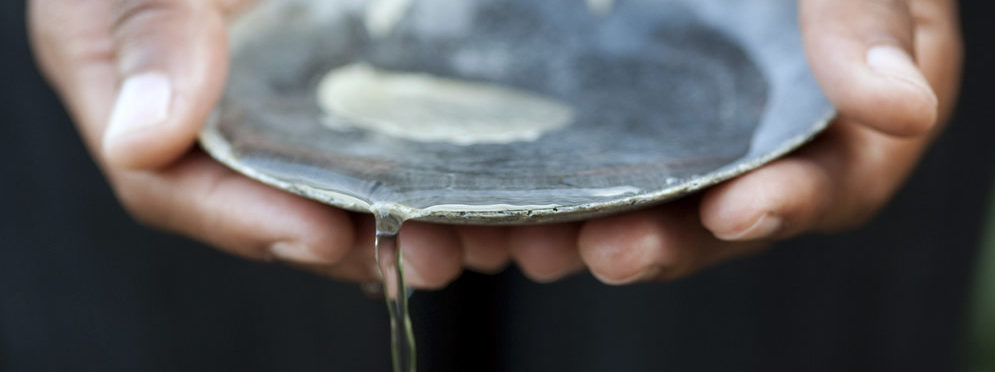Do you appreciate our weekly postings? Want to support our work to further empower lay voices at General Convention? Please consider contributing here. And learn more about our work as part of The Consultation.

To PBL’s disappointment, the House of Bishops at the 81st General Convention of The Episcopal Church this week decided to “take no further action” on Resolution D002: Review canonical requirement for Holy Communion. The House of Bishop’s lack of action effectively kills the resolution. Despite the question now rendered moot for this General Convention, Partners for Baptismal Living (PBL) urges the church to find appropriate ways to celebrate the life-giving invitation that Holy Baptism represents. Bishop Edward Lee, a member of PBL, offers these thoughts:
by Edward Lee
The current Canon (1.17.7) reads: “No unbaptized person shall be eligible to receive Holy Communion in this Church.”
Contrast that with what the Book of Common Prayer (p. 308) proclaims in the Holy Baptism liturgy: “You are sealed by the Holy Spirit in Baptism and marked as Christ’s own for ever.”
The former is negative, juridical, exclusive, and judgmental in its prohibition. Its blunt tone is that of a membership requirement to a country club. The latter is a solemn, inclusive, affirmative and challenging mandate for an intentional lifelong journey in Christ’s radical mission of redemption, renewal and release. The former is conditional; the latter is covenantal. The former is proscriptive; the latter is relational.
This contrast is why D002 in its current or an amended form must come to the floor of this Convention for discussion and action. The House of Bishops, the initiating body, is strongly urged to make this happen. Letting the present Canon stand or just be deleted is unacceptable. Both options would ignore and undermine the profound solemnity of Holy Baptism that is inherent in the Prayer Book liturgy. After almost a half century its centrality is secure in the worship and practice of the church. But what is yet to be fully realized is the radical character of what it means to be indelibly sealed and marked as Christ’s own disciple for ever.
Contained and found in this sacramental action is the unique Christian identity and vocation for ministry of every baptized person starting with the laity (99% of the church) and sequentially by the (1%) clergy. See the Catechism on The Ministry, BCP, p. 855. Therefore it is asked of all of us, how seriously do we understand, claim and embrace this baptismal mandate of seeing ourselves as ministers and our lives as ministry?
What has also brought this matter to General Convention’s attention is the increasingly common practice in many parishes of inviting and welcoming worshippers to receive Holy Communion whether they are baptized or not. There is no prior checking or public alert. Clearly a contradiction of the existing Canon but a point of entry and welcome for uncertain seeking and searching persons. It’s regarded as radical hospitality consistent with Jesus’s association with and inclusion of religiously unqualified persons of his time. It is radical as it should be, yet it should not diminish the centrality and solemnity of Baptism. It’s not an either/or matter but rather a both/and.
The suggestive language in the enumerated resolves of D002 propose an understanding of the connectedness of the Eucharist, Baptism and the inclusive fellowship that constitutes Christian community. For example, a revision to the canons that would be “a positive statement affirming that the fullest meaning of our Holy Eucharist is lived out through our Baptism and Baptismal Covenant.” (#6) Also, “develop a generous pastoral and invitational rubric to Baptism and Communion” in the Payer Book. (#5)
Hopefully this General Convention will not bypass this crucial theological, sacramental and pastoral matter that grounds and informs our Church’s mission and our daily baptismal ministries.
Edward L. Lee, Jr.
Steering Committee, Partners for Baptismal Living
Bishop, Diocese of Western Michigan, 1989-2002
Assisting Bishop, Diocese of Pennsylvania, 2003-2017